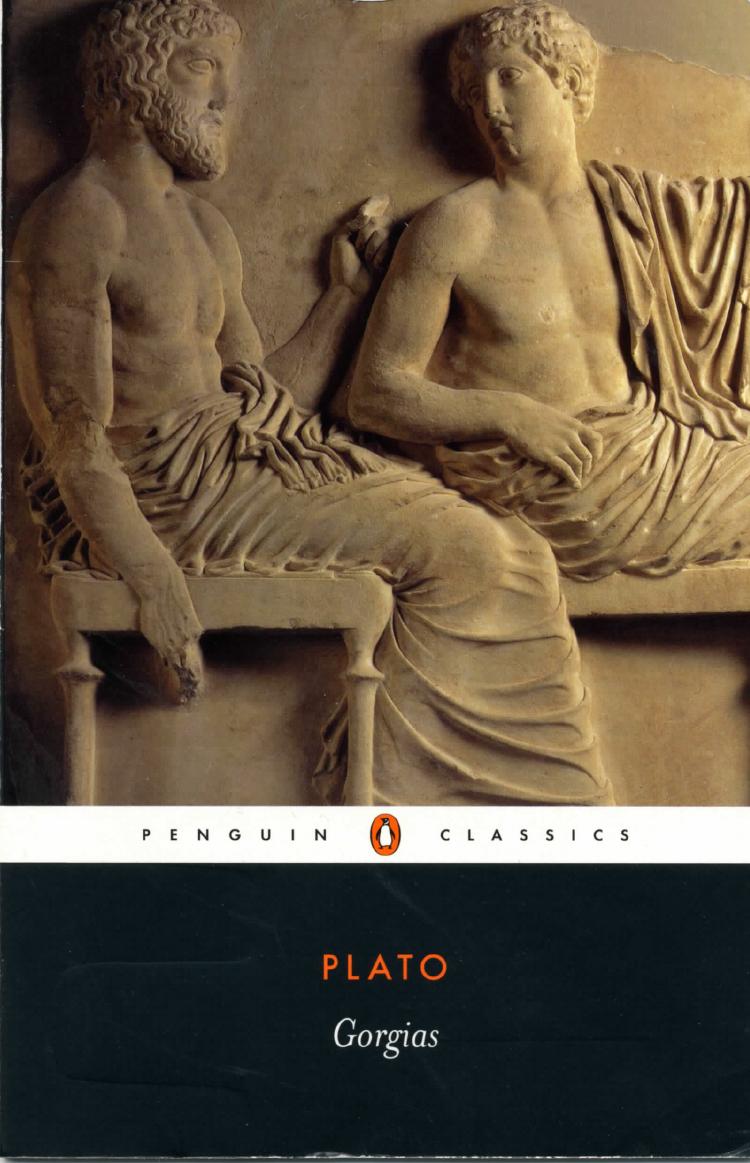Gorgias (Penguin Classics) by Plato

Author:Plato
Language: eng
Format: azw3, epub, pdf
ISBN: 9780141913476
Publisher: Penguin Books Ltd
Published: 2004-01-28T16:00:00+00:00
C[3] 488b2–491d3
Socrates does not immediately defend himself from Callicles’ attack, but goes to work on his claim by attempting to get him to clarify what he meant by ‘stronger’ when he asserted that ‘it is right that the better man should have more than the worse and the stronger than the weaker’ (483d1–2). In Plato’s dialogues, Socrates’ requests for clarification typically aim to uncover inconsistencies in his opponents’ positions; here, in the initial argument, he actually shows that Callicles’ assertion implies the exact opposite of what he claims: since the majority (by virtue of number) is stronger than the individual, then the laws imposed by the majority (the stronger) are better, and the majority believe that it is more shameful to do than to suffer wrong; so this is true by nature as well as by convention. To avoid formally conceding this, Callicles resorts to abuse and then shifts his ground: he accepts Socrates’ suggestion that he might mean that the ‘better’ and ‘stronger’ are the ‘more intelligent’ (489e8). Socrates then goes to work on this; the wiser man, by analogy with other ‘experts’ (e.g. doctors, weavers, shoemakers, farmers) should not, by virtue of being wise, take a larger share of goods than others. Callicles then shifts position yet again: to intelligence he adds bravery. By virtue of their superior intelligence and courage, outstanding individuals should rule and have more than others.
SOCRATES: Go back to the beginning and tell me again what you and Pindar mean by natural right. Am I mistaken in thinking that according to you right consists in the stronger taking the property of the weaker by force and the better ruling the worse and the nobler having more than the person of lesser worth?
CALLICLES: No; that is what I said then and what I still maintain.
[d] SOCRATES: But do you mean that ‘better’ and ‘stronger’ [c] are the same? I couldn’t make out just what you meant on this point. Do you mean by ‘stronger’ those who have greater physical strength, and must the weaker obey the stronger, as you seemed to imply when you spoke of big cities attacking small ones in accordance with natural right, because they are stronger and physically more powerful, as if ‘more powerful’ and ‘stronger’ and ‘better’ were synonymous terms? Is it possible to be better, but at the same time less powerful and weaker, and stronger, but also more vicious? Or are ‘better’ [d] and ‘stronger’ to be defined as the same? This is the point on which I want a clear definition; are ‘stronger’ and ‘better’ and ‘more powerful’ synonymous or not?
CALLICLES: I tell you quite explicitly that they are synonymous.
SOCRATES: Now, are not the mass of people naturally stronger than the individual? And these are the people, as you were saying just now, who impose their laws upon the individual.
CALLICLES: Of course.
SOCRATES: Then the laws imposed by the majority are laws imposed by the stronger.
CALLICLES: Certainly.
[e] SOCRATES: And therefore by the better? The stronger are also the better by your account, I think.
Download
Gorgias (Penguin Classics) by Plato.epub
Gorgias (Penguin Classics) by Plato.pdf
This site does not store any files on its server. We only index and link to content provided by other sites. Please contact the content providers to delete copyright contents if any and email us, we'll remove relevant links or contents immediately.
The remains of the day by Kazuo Ishiguro(8999)
Tools of Titans by Timothy Ferriss(8393)
Giovanni's Room by James Baldwin(7346)
The Black Swan by Nassim Nicholas Taleb(7129)
Inner Engineering: A Yogi's Guide to Joy by Sadhguru(6793)
The Way of Zen by Alan W. Watts(6614)
The Power of Now: A Guide to Spiritual Enlightenment by Eckhart Tolle(5781)
Asking the Right Questions: A Guide to Critical Thinking by M. Neil Browne & Stuart M. Keeley(5775)
The Six Wives Of Henry VIII (WOMEN IN HISTORY) by Fraser Antonia(5515)
Astrophysics for People in a Hurry by Neil DeGrasse Tyson(5189)
Housekeeping by Marilynne Robinson(4446)
12 Rules for Life by Jordan B. Peterson(4304)
Ikigai by Héctor García & Francesc Miralles(4274)
Double Down (Diary of a Wimpy Kid Book 11) by Jeff Kinney(4269)
The Ethical Slut by Janet W. Hardy(4251)
Skin in the Game by Nassim Nicholas Taleb(4248)
The Art of Happiness by The Dalai Lama(4130)
Skin in the Game: Hidden Asymmetries in Daily Life by Nassim Nicholas Taleb(4006)
Walking by Henry David Thoreau(3962)
